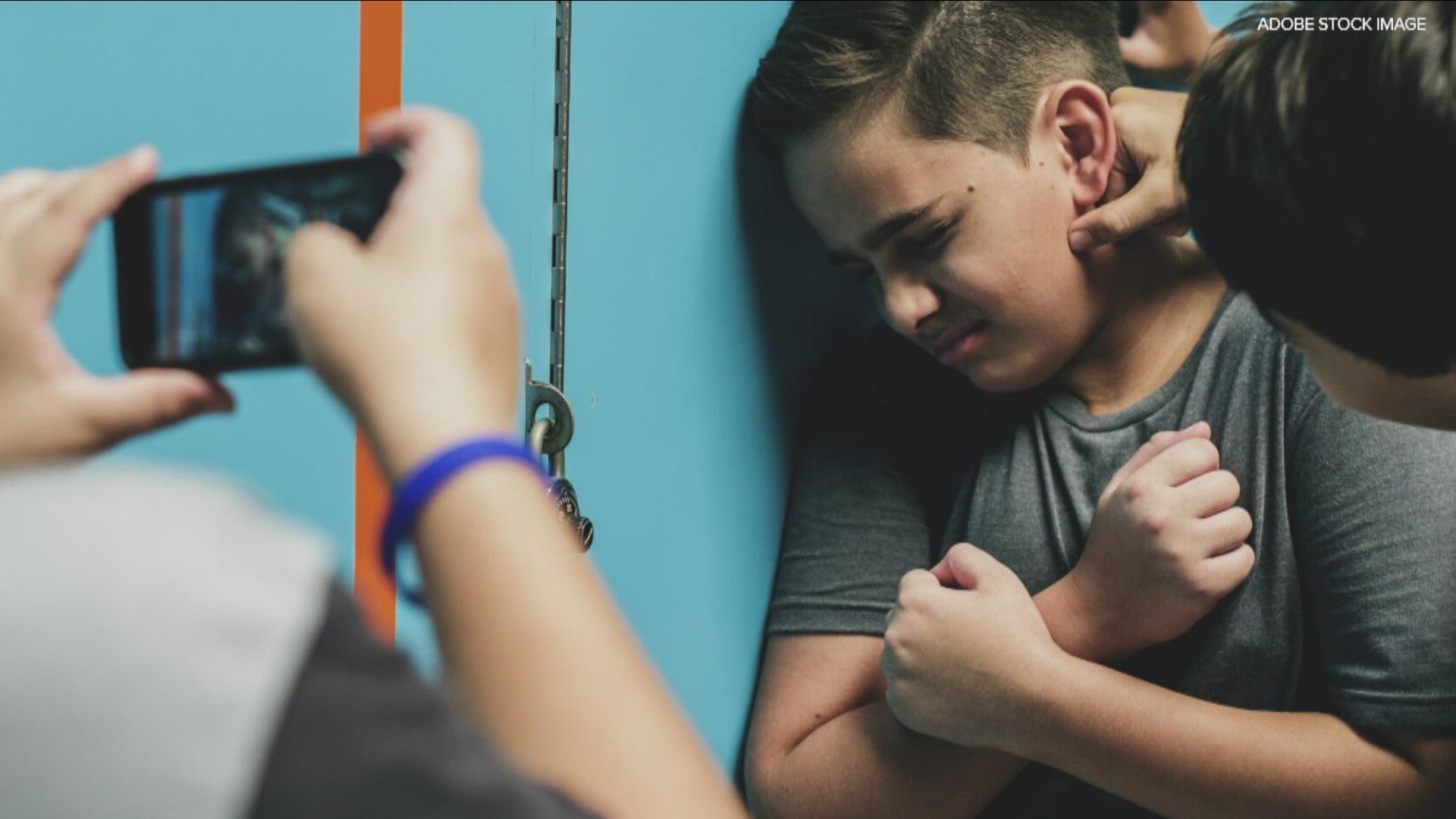GREENWOOD, Ind. — October is Bullying Prevention Awareness month, so this weekend on 13Sunrise, WTHR Education Expert Jennifer Brinker from Greenwood Middle School discussed with how parents can tackle the problem.
Dustin Grove: The word "bullying" is thrown around quite a bit. Can you explain the definition of bullying?
Mrs. Brinker: The Indiana Department of Education has defined bullying as, "overt, unwanted, repeated acts or gestures that are committed to harass, ridicule, humiliate, intimidate, or harm the other targeted student and create a hostile school environment." It is a lot more detailed than that, but you get the general idea. It is important to fully understand that definition because a child being rude or getting in one fight does not always equal bullying.
Dustin Grove: What are the different types of bullying the DOE has defined? I know that it can come in many different forms.
Mrs. Brinker: Bullying can be physical, verbal, social, or cyber-bullying, which has increased greatly since kids have so much access to devices and social media.
Dustin Grove: So say that a child comes home and you find out they are being bullied. What should parents do?
Mrs. Brinker: First of all, I will say that it isn’t always that easy that your child comes to you to let you know. Sometimes, you have to watch out for symptoms like your child withdrawing, trying to avoid school, not enjoying activities they usually would. These types of things should prompt some questions from parents. If they do let you know what is going on, your next step is to make sure you react appropriately as they do explain it to you. It is easy to get worked up during this, but your job is to seem stable and supportive. Flying off the handle immediately will be alarming to your child, so make sure you are listening carefully and calmly.
Dustin Grove: What comes next if our child is being bullied?
We have linked tips at the end of this interview that will help with how to respond to a bully.
Mrs. Brinker: These things include making sure your child lets the bully know that they need them to stop and how they feel. They need to react as little as possible. I know it is easier said than done. I often liken bullies to someone playing with a squishy ball. They do it to get a reaction. No one squeezes a baseball for fun because it doesn’t budge. Be a baseball. There are a lot of comparisons and strategies out there. It is important to have "what if" conversations with your kids before they ever even experience a bully so they can know how to stop the situation at the very beginning, if possible. It is also very important to let the teacher or school know as soon as possible so we can follow through with our bully plans we have as well.
Dustin Grove: One other question would be, "What if we get a call from the school informing us that our child is the bully?"
Mrs. Brinker: The most important thing you can do is get to the root of why your child is bullying. Generally they are either trying to fit in and impress others, deflect the chance of being bullied themselves, gain attention, or they have a really weakened ability to empathize with others and are looking for control. I would highly suggest counseling for a bully to help get to the root of the bad behavior. As hard as it can be to look inward, you need to do so. It is a lot more common for kids who witness unkindness and aggression at home to bully, so make sure you are setting healthy examples. Provide meaningful consequences but even more importantly, put the focus on how to make it right.

